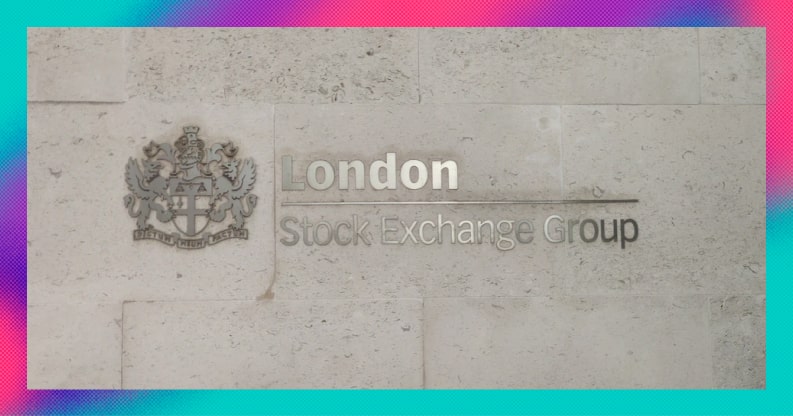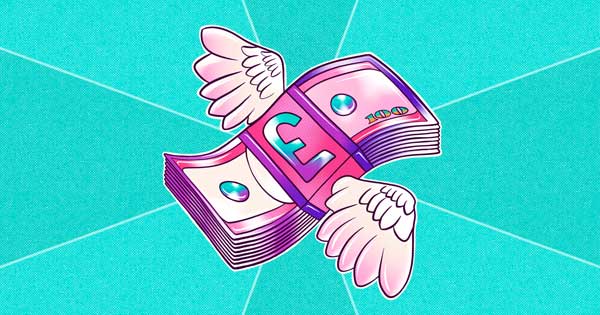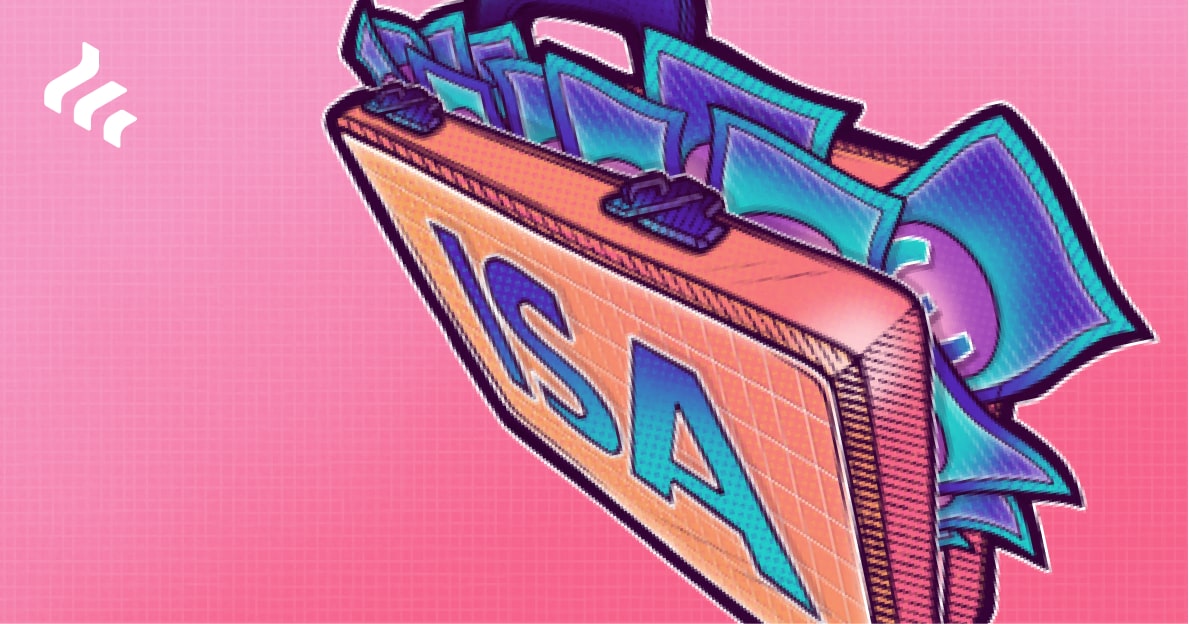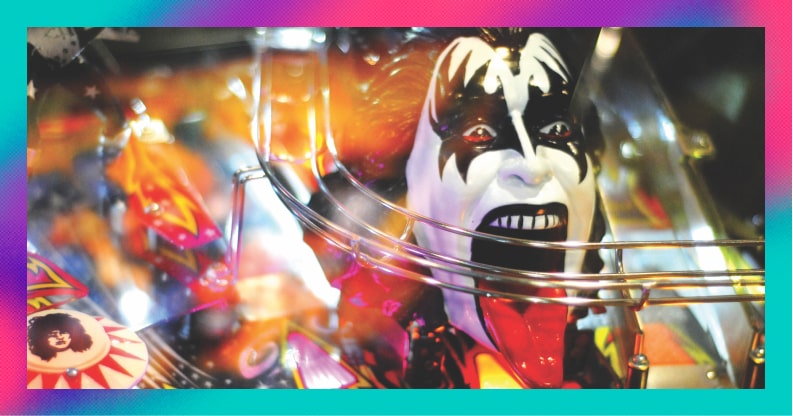Black taxis, buses, tubes. If it moves around the end of the tax year, it’s probably screaming ISA at you.
But even with all that advertising, what a lot of the financial industry fails to do is actually explain the full extent of what those three letters represent.
Unfortunately, that means ISA myths are always rife at this time of year too. And if we’re all a bit hazy on the benefits of an ISA, it means we’re less likely to engage with them and find out if they’re a good fit for us, let alone chart a course to become an ISA millionaire.
Luckily, misconceptions about ISAs are often easily explained. So, let’s clear up 15 of the most common ISA myths that have sprung up, and replace them with what you need to know instead.
Read more:
The (more realistic) ISA millionaire
ISA investors, keep your coffee
Is crypto right for your ISA?
1. You need a lot of money to get started
You can open a stocks and shares ISA (Individual Savings Account - there’s a misunderstood acronym cleared up already) for just £5.99 per month (or £59.88 per year) on the Freetrade Standard plan.
Everyone has a £20,000 annual allowance across their ISAs for the tax year but there’s nothing to say you have to hit that upper limit. Some people will, some won’t, and it’ll reset come the next tax year.
The current tax year started on 6 April 2024 and runs until 5 April 2025.
You can find more information in our full guide to individual savings accounts.
2. ISAs are just for cash savings
You can opt for a cash ISA, normally offered by banks and building societies. But ISAs aren’t just for cash. There are four types of ISA:
- Cash ISAs
- Stocks and shares ISAs
- Innovative finance ISAs
- Lifetime ISAs
In a stocks and shares ISA you can hold a wide array of assets, including company shares, exchange-traded funds (ETFs), investment trusts and SPACs as well as cash. So, while you can hold cash in a stocks and shares ISA, you can also hold a whole suite of other investments too.
You can have multiple ISAs at once. You can have a combination of ISA types (e.g. a cash ISA and a stocks and shares ISA), or you can have multiple of the same ISA (e.g. two stocks and shares ISAs with different providers).
Be mindful of fees though - having multiple ISAs with different providers could be more expensive. And, don’t exceed your annual £20,000 ISA allowance.
Cash ISAs might be useful for people who couldn’t stomach the risk of the stock market.
One of the most common misconceptions about cash is that, because you can see and hold it, its value stays the same.
What a tenner can buy you next year or the year after is likely to reduce over time due to inflation. It’s often a hidden risk but it’s there all the same. And the past two years sure have shown it.
The UK’s Consumer Prices Index (CPI) was up by 10.4% in February 2023 (CPI 12-month rate, ONS), making the average shopping trip a lot pricier (we needn’t remind you, do we?). At the same time interest rates were just 4% meaning the value of cash savings was eroding in real terms.
One of the most common misconceptions about cash is that, because you can see and hold it, its value stays the same.
What a tenner can buy you next year or the year after is likely to reduce over time due to inflation. It’s often a hidden risk but it’s there all the same. And this year sure has gone to show it.
The UK’s Consumer Prices Index including owner occupiers' housing costs (CPIH) was up by 9.2% this February compared to last [1]. That means your average shopping trip got a lot pricier (we needn’t remind you, do we?).
So, while cash is less volatile than investments, it can’t beat current inflation rates without a bit of extra help.
Though this isn’t to say that investments in your stocks and shares ISA come without risk. Whenever you invest, your capital is at risk. That means the value of your investments can go down as well as up. There is a risk that you lose all of the capital that you invest in the market. And this would be much less likely in the case of a cash ISA.
In the unlikely event your ISA provider went under, your ISA would be covered by the Financial Services Compensation Scheme (FSCS) up to a maximum value of £85,000. This is the case for both cash ISAs and stocks and shares ISAs too.

The good news is that inflation has steadily dropped over the past 12 months, landing on a more comfortable 3.2% in March 2024. Interest rates are 5.25% as of March 2024, so cash savers are seeing their cash savings truly appreciate in value.
So, while cash is less volatile than investments, it doesn’t always beat current inflation rates. Oftentimes, as demonstrated over the past two years, cash savings actually lose value.
This isn’t to say that investments in your stocks and shares ISA come without risk. Whenever you invest, your capital is at risk. That means the value of your investments can go down as well as up. There is a risk that you lose all of the capital that you invest in the market. And this would be much less likely in the case of a cash ISA.
So, why invest?
Investing is also a way to diversify your wealth. Cash is one type of asset, but you can diversify into stocks, ETFs, investment trusts, and Treasury Bills, too. You can invest in different geographic regions, like the UK, US, Europe, APAC and LATAM, and different industries. These different assets have different levels of risk, and consequently, potentially bigger returns.
In the unlikely event your ISA provider went under, your ISA would be covered by the Financial Services Compensation Scheme (FSCS) up to a maximum value of £85,000. This is the case for both cash ISAs and stocks and shares ISAs too.
3. Opening an ISA is complicated
It’s really not. Just keep your national insurance number handy and the rest should be relatively straightforward.
Before you click anything though, here’s a bit more information on who can open an ISA.
You have to be:
- 16 or over for a cash ISA
- 18 or over for a stocks and shares or innovative finance ISA
- 18 or over but under 40 for a Lifetime ISA
And you also have to be either:
- A UK resident
- a Crown servant (working overseas in the civil service, for example) or their spouse/civil partner if you do not live in the UK
You can’t open or hold an ISA on behalf of someone else. Some providers offer Junior ISAs (JISA) that you can open for your children but they’ll eventually take ownership of that. They can start managing it when they turn 16 and actually withdraw from it when they turn 18.
While the opening process isn’t complicated, remember that the ISA is just the wrapper. Once you have an account, it’s up to you what investments you put in it.
Everyone has their own goals and unique financial circumstances. These, along with your tolerance for investment risk and time horizon, should inform the mix of investments you choose for your ISA, if the decision to open one seems right for you.
Our resource hub for investing in the stock market and guides like those on how to start investing and the best investments for beginners might help make that blend a bit clearer for you. But if you are still unsure of how to pick investments, speak to a qualified financial advisor to develop your own investment strategy.
4. The best time to open an ISA is at the end of the tax year
It’s probably when you’ll hear most about ISAs because the 5 April deadline is looming but it’s not necessarily the best time to open one.
Despite how many people leave it to the last second to open their ISA, or squeeze in their final contributions to make the most of their allowance, you can open an ISA at any time.
If you’re planning on contributing to an ISA regularly, maybe monthly right after you get paid, it could be a good idea to start your account sooner in the tax year rather than later.
It’ll also give you more time to make your savings and investments tax efficient.
The last thing you want is to not use your allowance in the best way that you could have for your own financial situation, just because of a bit of disorganisation.
There are also no time limits on how long you need to keep your money invested in a stocks and shares ISA. That said, it’s good practice to have a long-term time horizon when investing, of at least five years to give your investments time to grow and hopefully iron out any short-term volatility.
5. Once your investments in a stocks and shares ISA hit the annual allowance, you start paying tax
This one blurs a couple of important concepts around ISAs, so let’s first separate them.
Your £20,000 allowance refers to how much you are allowed to put into your ISA each tax year. It has no bearing on tax thresholds, it’s just the upper limit to the amount of cash you can add to your account from 6 April to 5 April of a given tax year.
The second part here risks missing the point of stocks and shares ISAs entirely. They offer a way to invest so that you can keep your gains instead of worrying about exceeding the £6,000 CGT (capital gains tax) limit for 2024/25.
If you’re not investing in an ISA, you may end up with a lot of extra maths come year-end, and potentially, much more tax to pay.
The dividend and capital gains allowances that we’ve been used to have been dramatically slashed over the past two years.

6. Stocks and shares ISAs are for seasoned investors
There’s something of a mental barrier behind this myth. Investing can conjure up images of old city traders chatting in code about financial products, but the reality is we can all get involved in taking control of our financial futures with help from a stocks and shares ISA.
In fact, stocks and shares ISAs can be particularly helpful the longer you have them. If your investments begin to grow over time, the benefit is being able to hang onto those gains in an ISA without having to pay CGT.
Whether you’re maxing out your allowance every year or just contributing smaller sums over the years, there’s no need to put on your red braces and Savile Row suit to get started.
And if you’re on a mission to choose the best trading app, it might be worth looking at which providers are set up to help new investors as well as old hands to figure out the best platform for your specific financial goals and needs.
7. An ISA won’t help me, I don’t pay taxes on my savings anyway
We’ve touched on this above but it’s worth laying out what purpose ISAs serve in helping us take responsibility for our own financial futures.
While a lot of us stockpile cash in general savings accounts (or GIAs), record-high inflation has meant the benefit of doing so has faded a lot as of late.
However, we’ve seen interest rates steadily increase over the past year, to the current 5.25% (as of March 2024). If you earn 5% interest on cash savings in an ISA, it may not be as hard as you think to exceed your personal savings allowance.
Personal savings allowance bands






















